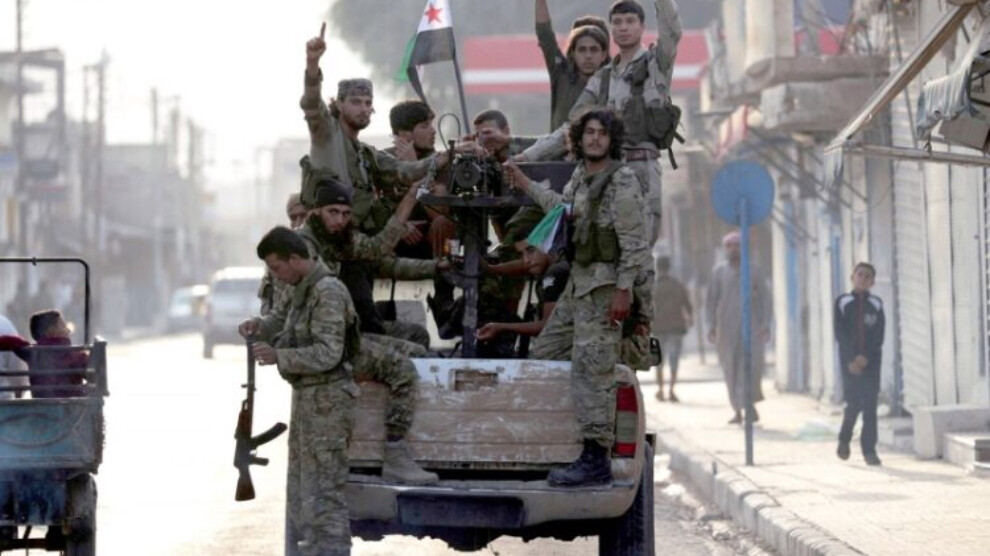Al-Hamza Division imposes new levies in occupied Afrin
SOHR reports further violations by Turkish-backed factions in Afrin.
SOHR reports further violations by Turkish-backed factions in Afrin.

The Syrian Observatory for Human Rights (SOHR) reported that the Turkish-backed al-Hamza Division, headed by Mu’taz Abdullah, has imposed new levies in return for allowing civilians to take care of olive trees belonging to people who have been displaced from the villages of Kafrdalli Tahtani, Kafrdalli Fuqani, Ma’rata and Mazen in Afrin countryside.
Accordingly, Al-Hamza Division has asked the authorized representatives of the trees’ owners to pay eight USD (25,000 SYL) for each tree every three years in return for allowing these representatives to take care of olive trees.
In June, the division asked the villages’ headmen in the region to count properties of people who had been displaced from Afrin with the aim of taking them over, after the faction had already taken over some farmland and olive trees belonging to these villages’ residents for “dealing with the Autonomous Administration”.
The observatory noted that this levy is also not included in the previous “olive harvest season” or the annual taxes of 20% of the harvest, which the Local Council have imposed on farmland owners.
SOHR had previously reported that a member of al-Sham Corps, known as “Abu Khalil”, assaulted a 74-year-old woman from Kawenda village of Rajo district in Afrin on July 4. The Turkish-backed militiaman hit the woman with a chair and insulted and abused her because she refused to pay the “protection levy.”
According to SOHR, the Turkish-backed al-Hamzah Division had imposed levies of 200 to 500 TL on residents of Kokaniyah village in Mabata district in Afrin countryside north of Aleppo, under “protection taxes”. “Abu Sultan”, a commander in al-Hamza Division, informed the residents that they must pay these new levies, during a meeting in the house of the village’s headman.
The commander warned the village’s residents that if they refused to pay, their properties would be subjected to thefts, then al-Hamza Division would not be responsible for protecting those properties.